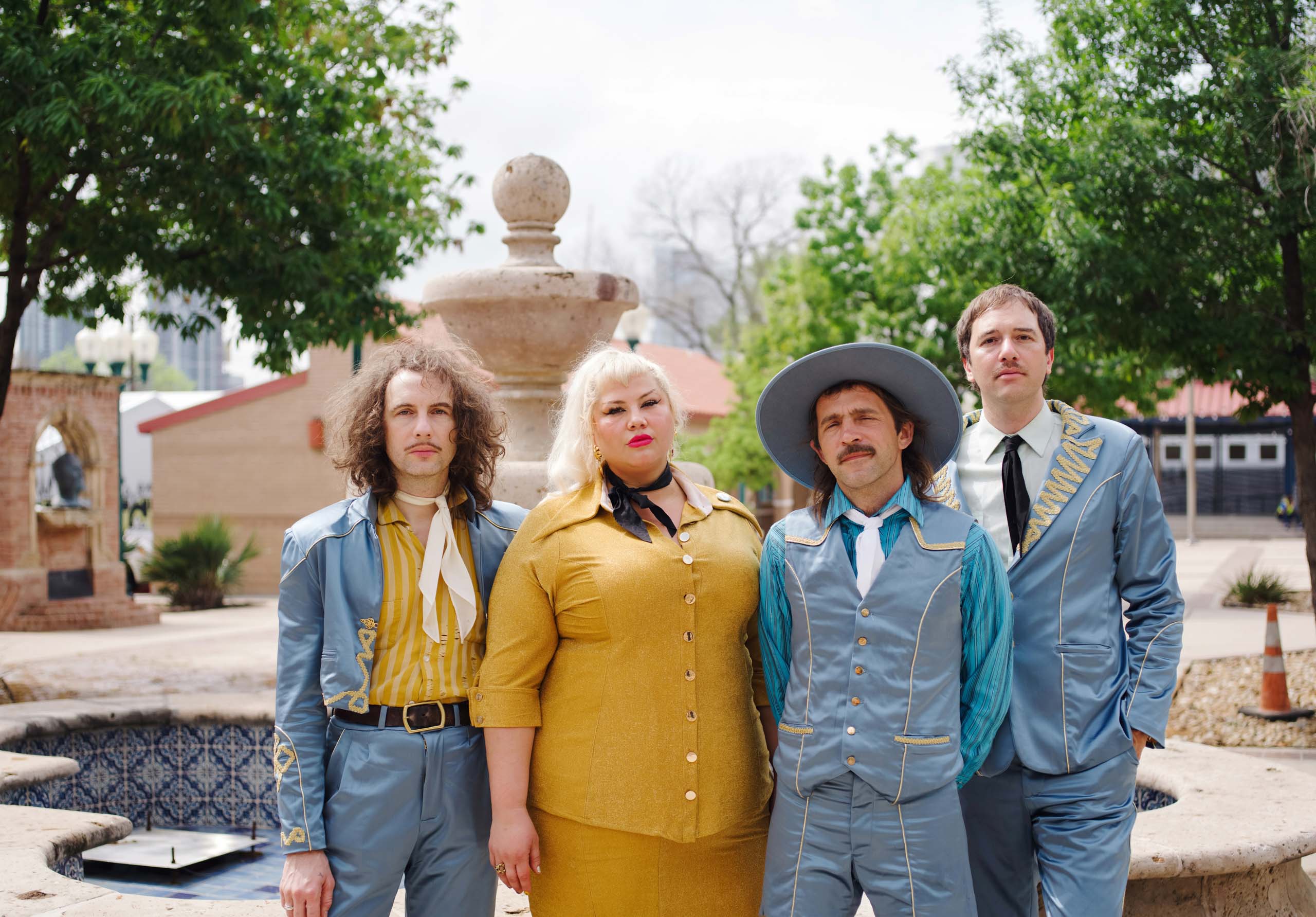As long as the human race has known love, we’ve also known grief. In 2022, Shannon Shaw lost her fiancé, Joe Haener, in a devastating car crash. Entirely caught off guard, Shaw and the other members of Shannon and the Clams—Cody Blanchard, Nate Mahan, and Will Sprott, also all close with Haener—together felt grief and love unfurl over the next year. The loss led to the music of their new record, The Moon Is in the Wrong Place.
In more ways than one, the album is a step into new spaces for the group. While the Clams still draw influence from doo-wop, surf rock, country, and rockabilly, the record continues their musical growth with the help of producer Dan Auerbach. Not only does the vibrant and maximally dreamy instrumentation now include more drum machines and an Omnichord, infusing it with the spirit of the 1980s rather than emphasizing that of the psychedelic ’60s, but the lyrics and themes take us to the farm and its ever-changing, ever-present moon, preserved as it was a few nights before Joe passed. We’re left with an incredibly personal record from a band we’ve come to know over the past 15 years. The heartache felt is so apparent that it—like the music—comes across in technicolor.
Ahead of the album’s release this week via Auerbach’s Easy Eye Sound, we talked with the band about Joe and his presence on the album, the progression of the Clams’ sound, and the utility of sad songs.
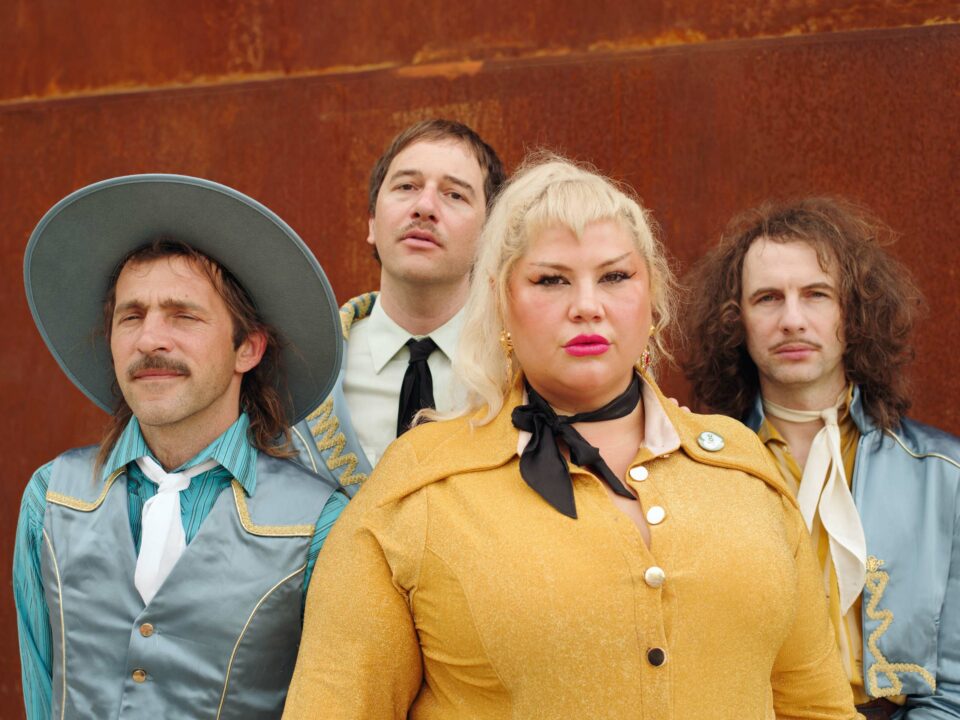
Fifteen years ago this summer is when your debut album I Want to Go Home was released. How has the band changed in that time?
Shannon: I feel like our songs were just a lot simpler—a little more campy and more focused on an atmosphere. We were asking, “How’s this going to feel when we play it at a party or in a backyard?” I think we’re just thinking a lot deeper now. The songs were either really, really sad or really, really punk, but I feel like now we have a lot more depth. All the musicianship has gotten a lot better.
Will: It’s been a steady project to expand what the sound of the Clams is. None of us want to feel like we can’t do certain things. We put disco-y songs on records, we put drum machines on records, and we’ve used arpeggiators, synthesizers, and stuff that people don’t think of the Clams as doing. We just love a lot of different music, and it all seeps into what we do.
The new album feels like it’s exploring grief, but also celebrating life. Did you know you were going to write an album about Joe?
Shannon: Yeah, I think it was just unavoidable. All I personally could do was write about losing Joe. We’d just been touring tons and tons, and I think we were supposed to be leaving for a trip, like, five days later or something. So we were busy, and we weren’t in the middle of writing or anything like that. The only song I wrote before this event occurred was “The Vow,” because I was going to perform it at our wedding. Otherwise, everything just kind of poured out of us after that.
“That mental space you’re in after somebody you love dies makes the world speak to you really loudly.” — Cody Blanchard
How did you land on the psychedelic experimentation of the sound, with all these references to cosmology and astronomy? How does that relate to Joe?
Shannon: For me it goes back to the title of the album, The Moon Is in the Wrong Place, and that being something he’d said to me shortly before he passed away. He was trying to think of “mercury in retrograde,” I believe. But he couldn’t remember it because he’s not connected to that stuff at all. And he was like, “What’s that thing that people are always talking about when everything’s going wrong and everything feels right and everything keeps breaking? What’s that called, like, ‘the moon is in the wrong place’ or whatever?” I was so stunned by that, and I put it down in my phone. Then when he passed away, it was like, “Oh God, the moon is in the wrong place forever now.”
And there was a very dramatic full moon, like, two nights before he passed away, when he and I played a show together. I just felt like everything started to change from that day on. And the day he died, we spent a lot of time out in the bean fields. And the Perseid meteor shower was happening. And I just started to notice a lot of things in nature that I didn’t notice as much before, like a lot of wild stuff in the sky. A lot of insane sunsets and sunrises and moonrises and things like that.

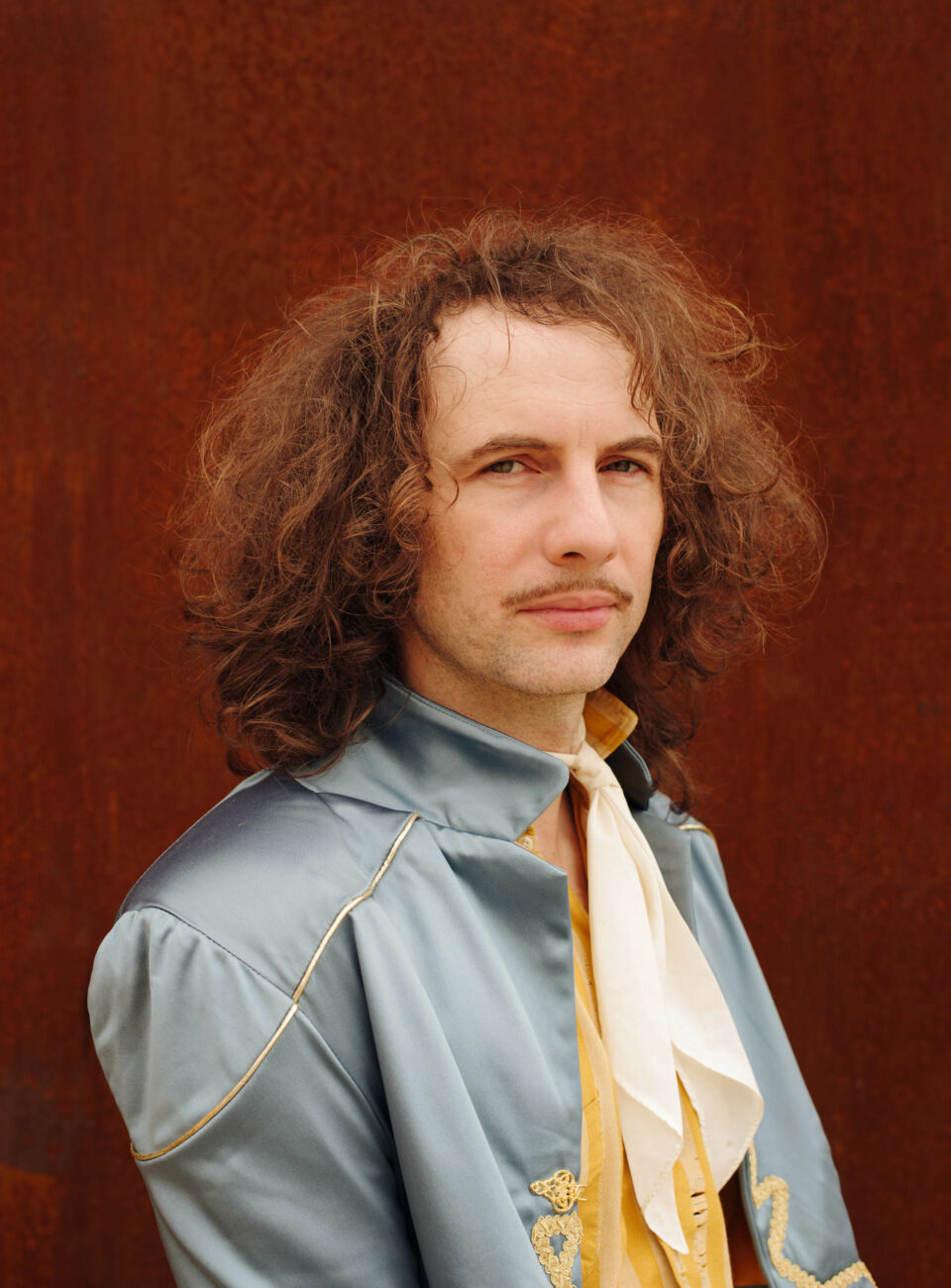

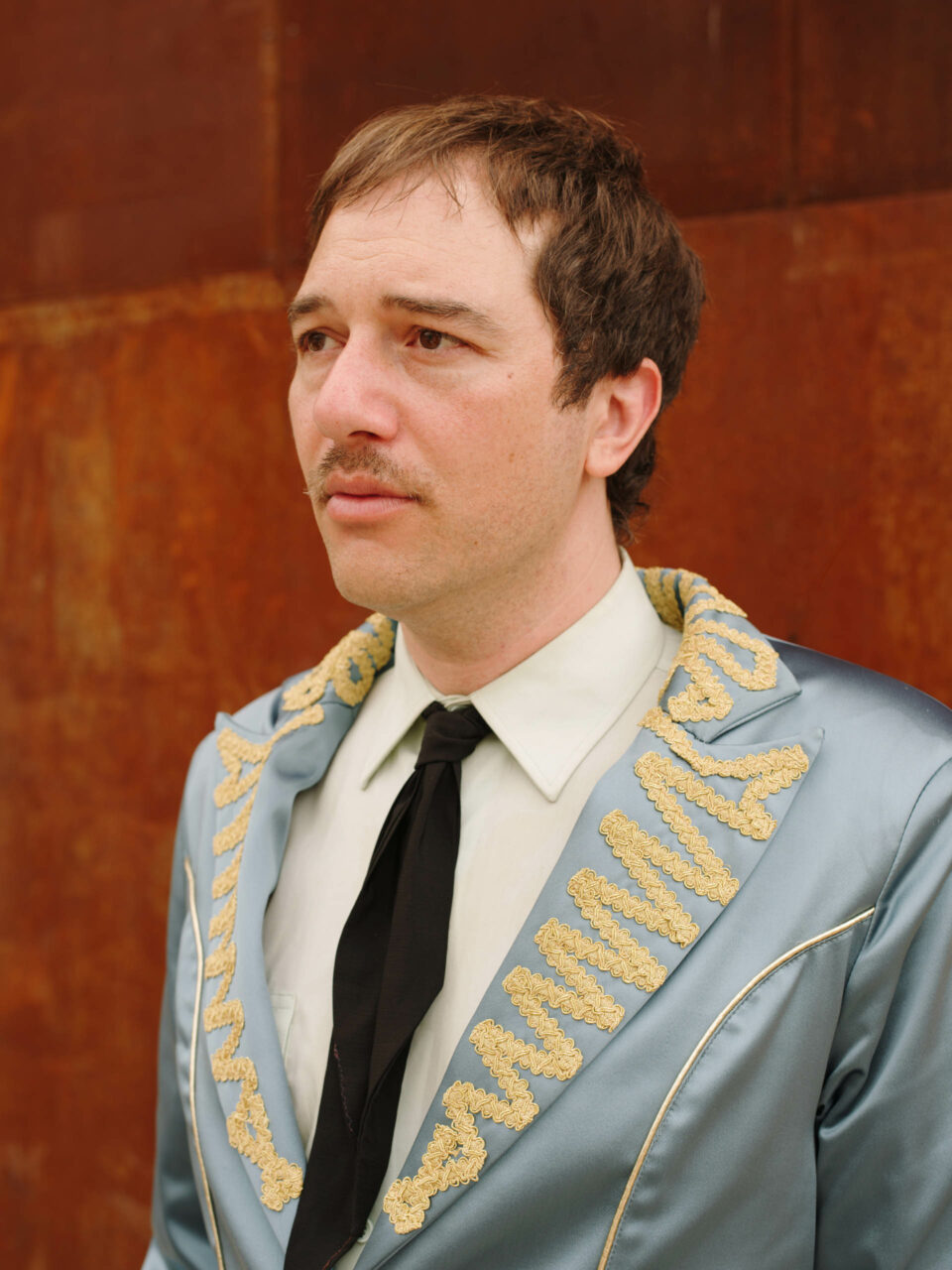
It really does feel like there’s a setting and sense of place for the album. Would you consider it a concept album?
Cody: We didn’t have any discussion about making it a concept album, but I don’t know, that mental space you’re in after somebody you love dies makes the world speak to you really loudly. The moon relationship was really alive for me because I remember that show Shannon was talking about, and at the end of the night the harvest moon was rising—it was fucking dark red. That was one of the last times I saw Joe.
And then after he died it was the middle of summer in Oregon, and you could see the moon all the time. It was really fucking with my sense of time because another day would pass and it felt like, “Why are we moving forward? We’re not supposed to be going still with something wrong that has happened.” Then I’d see the moon at night and I see, like, “Oh, it’s half full.” It would just be this reminder that time is still passing whether or not you’re ready. It was sort of putting in perspective that whatever you’re worried about that’s happening to you right now, the whole cosmos is still spinning around and you can’t ignore it.
“I want to be able to keep Joe alive in the album, and still keep finding ways to celebrate him. I want other people to be able to apply that to their own situations and do the same thing.” — Shannon Shaw
In addition to the grief explored on the record, tracks like “Bean Fields” are a celebration of life and are much more upbeat. How do you think sadness fits into music like this?
Nate: I enjoy heavy themes in a major key. If the music sounds positive or joyous, but the lyrical content has a certain intensity to it, it’s a way to offset those feelings. I always noticed it in reggae music because it’s pretty much all in the major key. But some of the topics are just so heavy.
Upbeat music also brings people together.
Shannon: An important message is that I want to be able to keep Joe alive in the album, and still keep finding ways to celebrate him. I want other people to be able to apply that to their own situations and do the same thing. It’s not good to just retreat. I can’t blame anyone for retreating forever, but I don’t think it’s very productive or helpful.
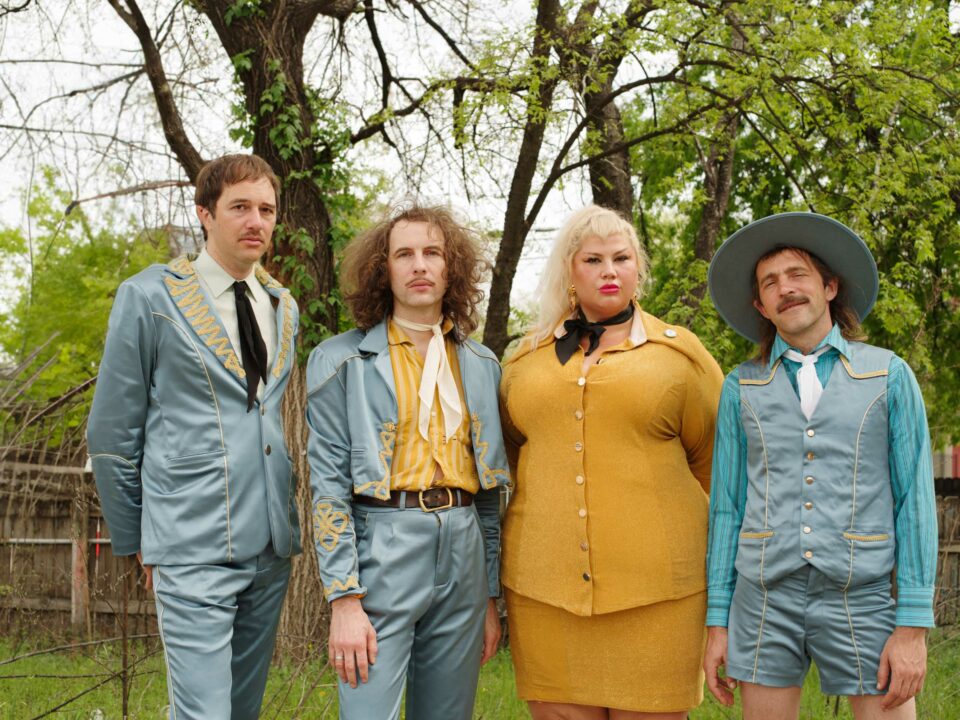
The identity of Shannon and the Clams is so strong at this point, and it feels like the palette is wider on the new album. The Clams’ sound is in 3D now.
Shannon: I fucking love to hear that—I feel that way, too. It comes so naturally to want to categorize things, and I’m thinking about comments over the years of “They don’t sound like doo-wop anymore.” Were we ever a doo-wop band? We love doo-wop, but I don’t feel like we’ve ever played a genre, and played that music only. Like Will said earlier, our taste seeps into our art.
Will: Yeah, I never really worry that we’re going to lose the sound. It always feels like our tastes are strong enough that if we’re just doing what we like, we’re going to fit into this world that we’ve been building. And I think Dan [Auerbach] has been instrumental in helping make that bigger, but I think it also comes from our side. I love a rich recording. I love getting in my headphones. I love things hitting you in weird ways. And I love the description “3D,” because I love feeling like you’re actually in some sort of space with the music rather than it being a flat wall. FL


